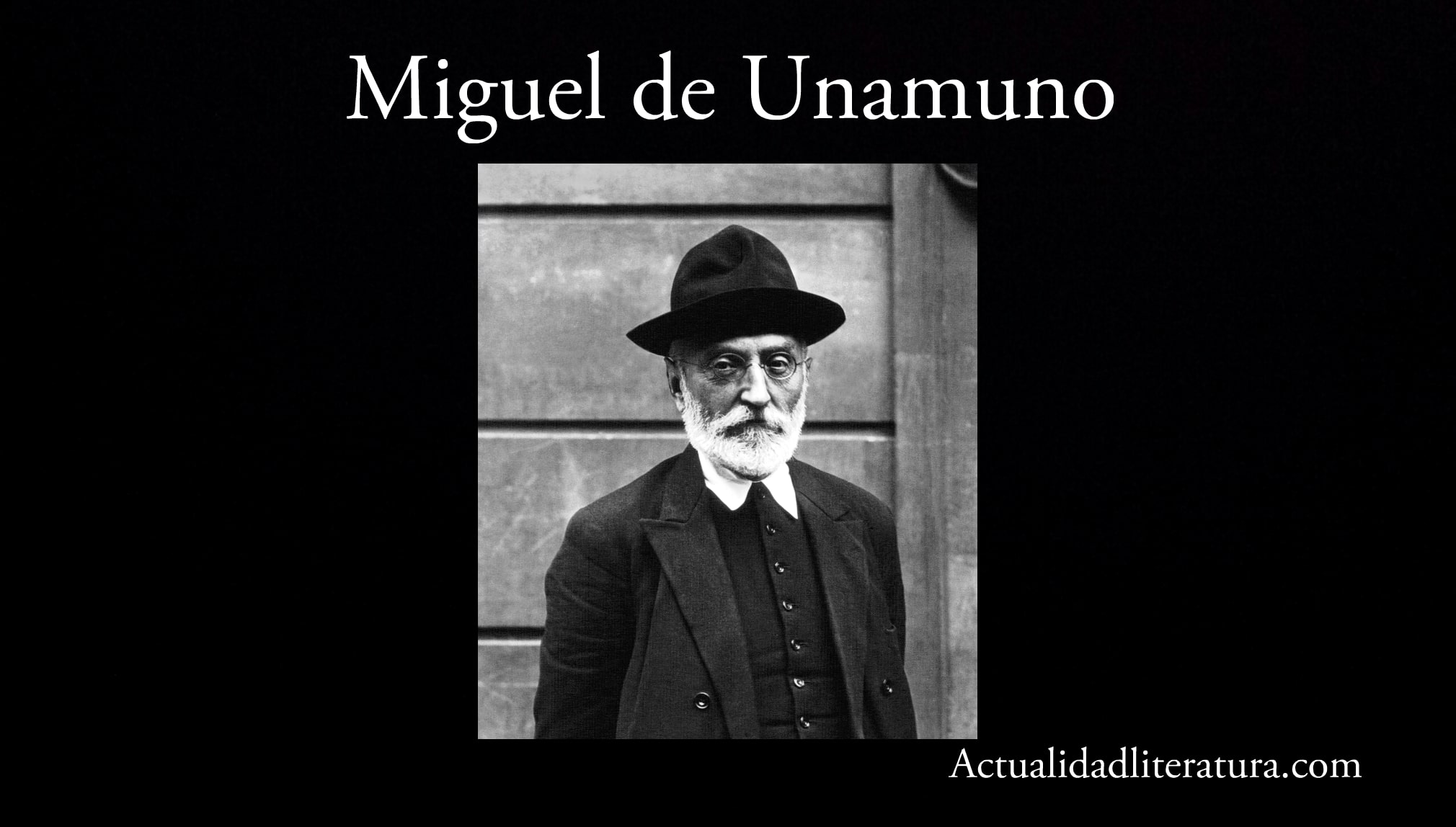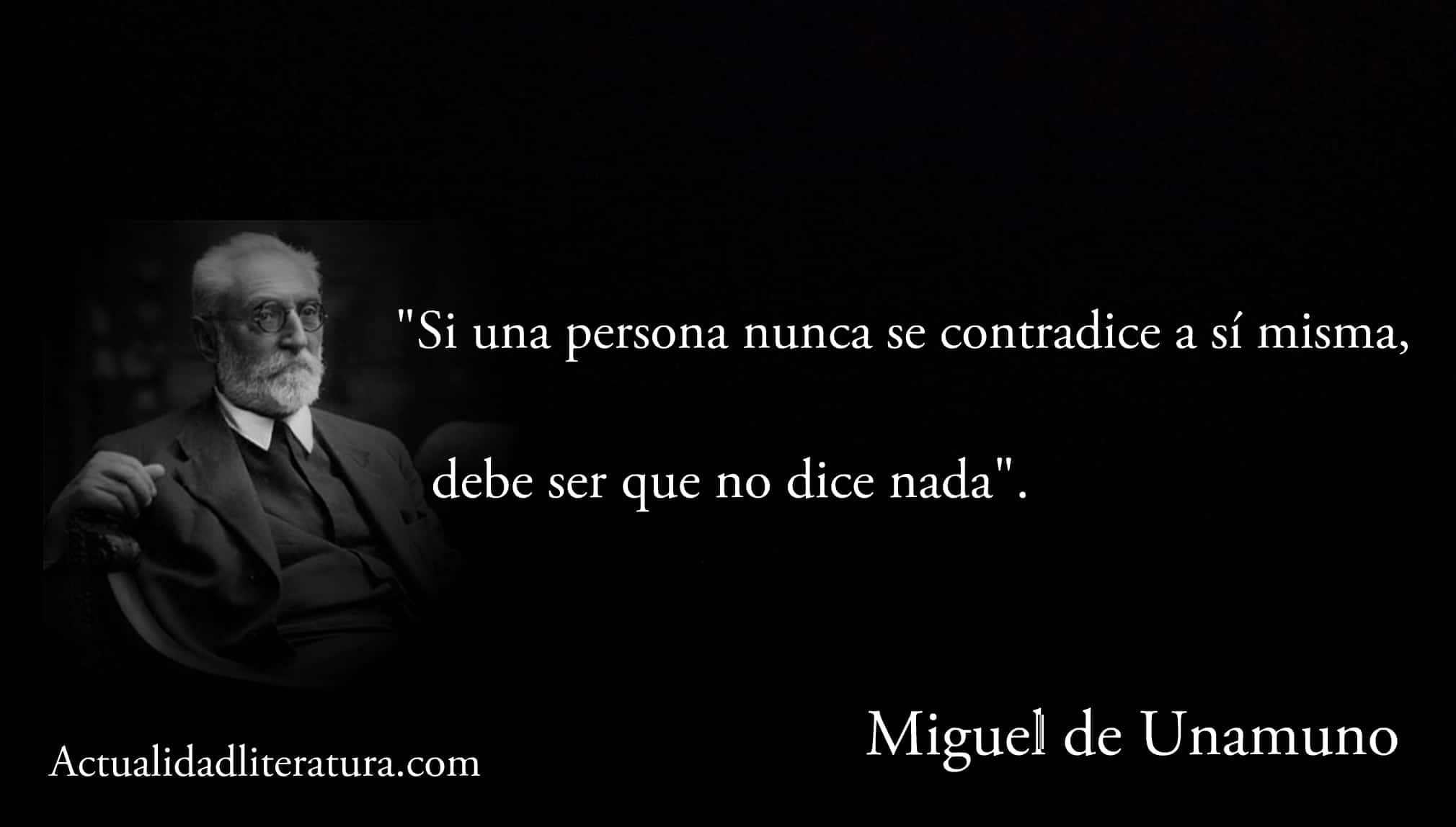
Miguel de Unamuno.
Fog (1914), by the Bilbao writer Miguel de Unamuno, is a fundamental piece within the references of the modern existentialist novel. Certainly, when analyzing the style characteristics of this work, it is necessary to identify the features of a new genre inaugurated, precisely, by Unamuno with Fog.
It is the «nívola», a narrative constructed through the most unlikely monologues of the protagonists. Among those internal dialogues, they are detailed from the thoughts of a dog to a communication of the main character with its creator. Further, the masterful handling of fiction and the materialization of the ethereal, make Fog a true literary gem.
About the Author
Miguel de Unamuno saw light for the first time in Bilbao, Spain, on September 29, 1864. During his childhood he witnessed closely the harshness of the Carlist War. In the 1880s he completed a degree in Philosophy and Letters at the University of Madrid. His first jobs were as a high school teacher (he taught Latin and psychology), but his main purpose was to obtain a university chair.
After several unsuccessful attempts, in 1891 he was appointed Professor of Greek at the University of Salamanca. (In that city he lived most of his life). In 1901, he became rector of that house of studies (the first of three long terms). The longest interruption in his university work occurred during the dictatorship of Primo Rivera (1924 - 1930), when he went into exile in France.
Character
Unamuno's stark contradictions are evident when observing his changes in political affiliation, in his spiritual dilemmas, and in his own works. In fact, He was an individualistic man with a considerable ego, in constant tension even with himself. Therefore, it is not surprising his militancy in the PSOE or his empathy for socialist ideologies during his youth.
Later, he leaned towards more conservative tendencies, coming to sympathize with the Franco regime despite having been elected as a deputy during the Republic. Although towards the end of his life he retracted from this position. Thus, He died in confinement at his home on December 31, 1936. A few weeks before his death, he uttered one of his most famous phrases in front of a crowd:
"You will win but you will not convince."
Characteristics of his work
Legacy
The magnitude and significance of Unamuno's artistic creation is only comparable to other giants of XNUMXth century Spanish literature. In the same way, he was a successful writer in all genres: prose, poetry, essays, dramaturgy ... On the other hand, this Spanish author has been historically located within the Generation of 98.
Themes

Quote by Miguel de Unamuno.
Miguel de Unamuno was always a person concerned about the history, literature, vices, the present and the future of Spain. Similarly, he was very in favor of a spiritual renewal of a nation traditionally inclined towards contemplative attitudes. Within his intellectual evolution he changed his claims to "Europeanize Spain" by "Spanishize Europe".
Another very palpable aspect in his work is his attention to the anguish and problems of the human being. Therefore, the Bilbao writer elaborated arguments around deep existential problems about the eternal dilemma between the finite condition of man. As well as his relationship with God and the immortality of the soul or ideas.
Style
Unamuno's creative process and the messages transmitted in his pieces faithfully reflect his personality. His works are a perfect blend of the strictest sobriety with a liveliness expressed through renewed rhetoric., away from old-fashioned ways. In addition, the Basque author came to invent new terms to add density to ideas and intensity to emotions.
Analysis and summary of Fog

Fog.
You can buy the book here: No products found.
Approach
The novel recounts the circumstances of Augusto Pérez, a wealthy young jurist who has just lost his widowed mother. Being an only child, the protagonist feels very disoriented regarding his own existence. His response to any situation is - supposedly - to philosophize, but, to tell the truth, his decisions tend to be rather impulsive, little considered.
Despite harboring noble feelings, he is prone to indolent behavior. Consequently, Augusto "lets himself live" instead of taking charge of his life. For this reason, are unable to identify and / or confront their feelings when they arise, especially, after being rejected by a beautiful pianist, Eugenia Domingo del Arco.
Development
In the first instance, the young courted woman argues that she has a boyfriend, Mauricio. However, when Augusto begins a love affair with Rosario —One of her maids— she (suspiciously) chooses to break up with her partner. Then, Rosario agrees to be engaged to Augusto and a date is set for the future wedding.
Crisis
However, shortly before the marriage, Eugenia notifies him by letter to Augusto that she will not be his wife. Instead, she decides to return with Mauricio and go with him to the province. Also, in the letter the girl explains her plans to support herself at the expense of the job that the lawyer had found for Mauricio (who was lazy) and in a house whose mortgage Augusto had paid.
In this way, the perception of a magnificent and fighter woman that Augustus (and the reader) had vanishes when her true unscrupulous nature appears. Accordingly, Eugenia's qualities as a liar, creeping, manipulative and profiteer are evident. Faced with this betrayal, the main character's exit is suicide.
The revelation
As the last act prior to killing himself, the protagonist decides to go to Salamanca to visit Unamuno. With the author, he engages in an epic dialogue, where Don Miguel incarnates God and Augusto represents the creature. At this point, a wasteful revelation appears on the part of Unamuno - the Creator: Augusto Pérez is not real. The lawyer is a fictional character with a marked destiny, other than dying by suicide.
Finally, Augusto contradicts Unamuno and claims that he does exist. What's more, It reminds him of the inescapable mortal condition of all human beings (including Don Miguel, the readers, and himself). This statement leaves the author a bit upset, who retires to rest at home ... While he sleeps, God stops dreaming of Augustus, consequently, the protagonist "falls apart", that is, he dies.